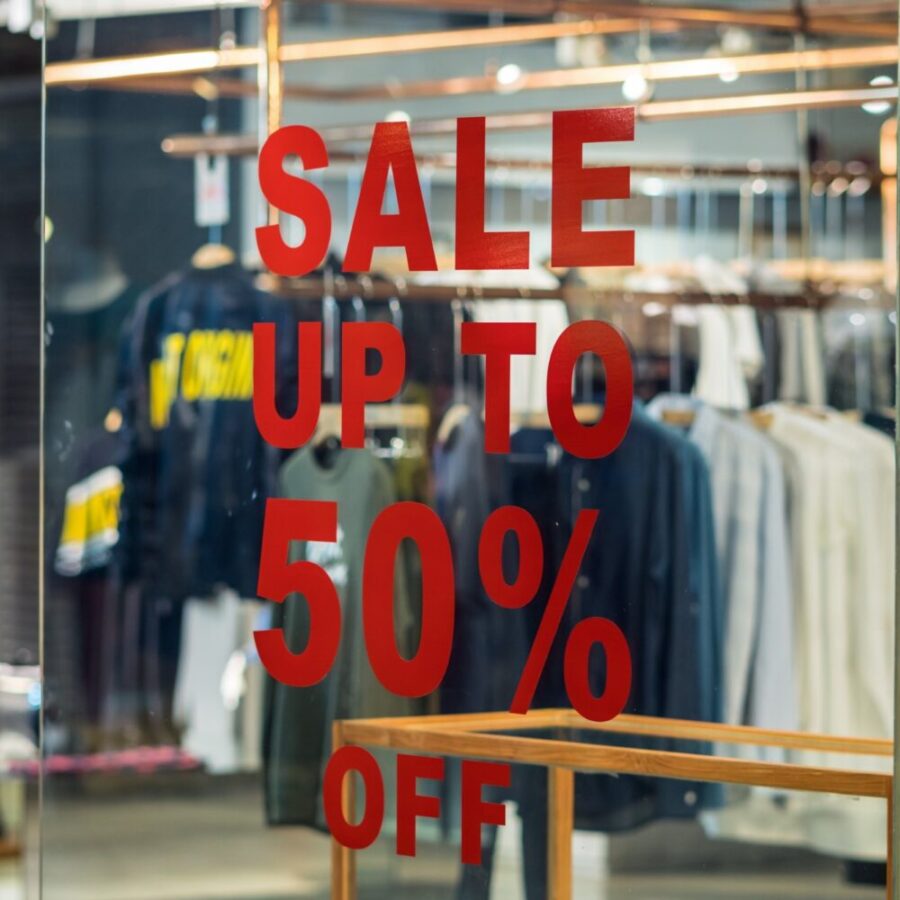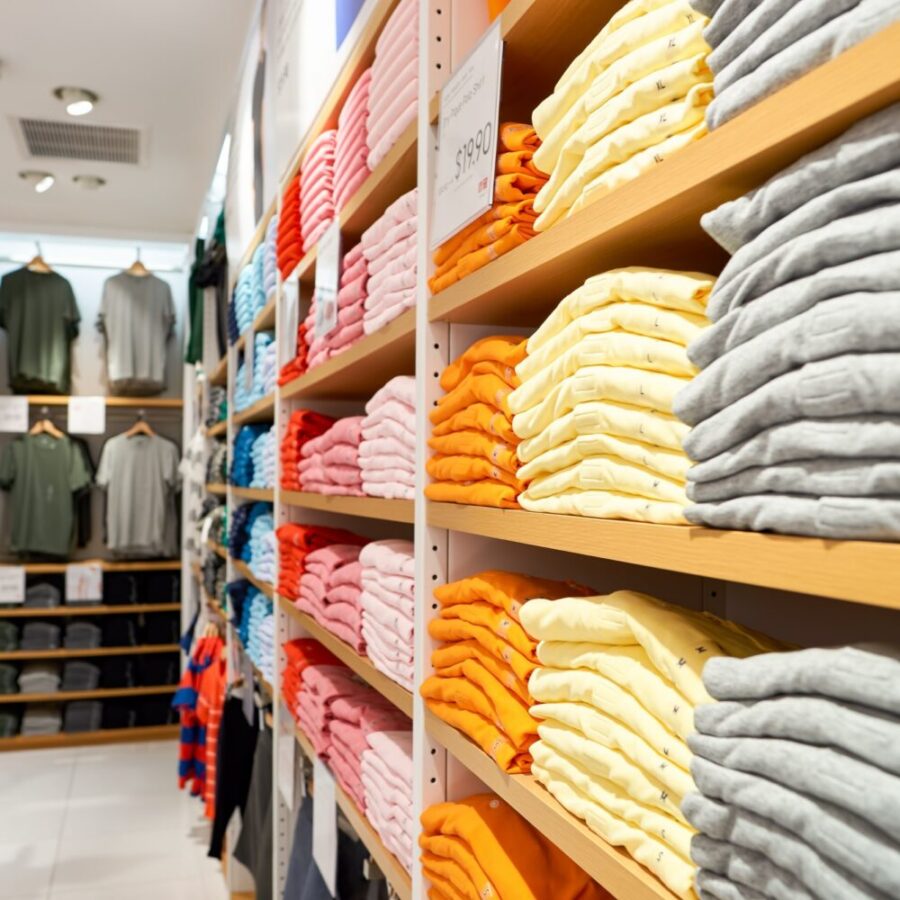9 Methods Retailers Use to Scam You Into Buying More Than You Want or Need

123RF
Nothing is ever fair or morally honorable when it comes to the tactics that retail businesses will use to get you to buy their products. Businesses use psychological warfare tactics, deceptive advertising, and other tricks to scam you all of the time.
Every time you step into a supermarket or retail store, the very layout of the store, the signs, and even the way products are placed are designed to psychologically entice you to buy more than you want or need. Shopping addiction, which is a real psychological condition, is essentially a codependent behavior when you count the scam-like tactics of retailers.
Here are 9 various methods and tactics retailers, supermarkets, and restaurants always use to scam you into buying things you don’t want, need, or end up using.
1. Going Out of Business Sales Are a Scam

123RF
Once consumers see a “Going Out of Business Sale!” sign, they become immune to logic and reason. If a store is perpetually going out of business and never closes, that is a sign of trouble. A store’s owner can legally sell their inventory to a third-party liquidator who is technically holding the sale. They then incrementally raise prices because they know you won’t compare local prices once you see the marketing. You could actually pay more for purchases at a “Going Out of Business Sale,” relative to local market prices.
2. Items The Store Wants You to Buy Are At Eye Level

123RF
When you walk into a large supermarket, bulk shopping store, or retailer, the items that they want you to buy are always strategically placed at eye level. They don’t want you looking around aimlessly, they want you to impulsively buy products that you see in your face. Relatively cheaper products might be above and below your direct line of sight. How is that not a scam?
3. Goldilocks Pricing

123RF
Goldilocks pricing, also known as menu engineering or price anchoring, is a psychological tactic restaurants and retailers use often. The scam is to get you to scoff at a high-priced item yet buy another item a tier or two below that one. For example, have you ever been to a restaurant and seen a stunt menu item like a $1,000 hamburger, steak, or wine bottle?
You probably scoffed at the high-priced item and then bought a $200 menu item, which was the plan all along. You psychologically rationalized buying one inflated price item because the other was too high or too low. You chose the right one to benefit the business, like a reverse Goldilocks.
4. Supermarkets Place Dairy, Health Foods, Meats, and Essential Staples In the Back to Get You to Wander Around

123RF
Have you ever noticed that you have to get to the back of the supermarket to buy milk, butter, and protein? That isn’t an accident. Supermarkets meticulously design their layouts to make you walk around as much as possible and make multiple impulse buys. It’s only a scam if you don’t stick to your shopping list and often give in to impulse.
5. Store Floor Layouts Are Changed Often to Confuse You and Keep You In The Store Longer

123RF
How many times have you noticed that your local supermarket or retailer has changed their floor layout? It wasn’t an accident. When you become too used to a store’s layout, you could soon walk around blindfolded to get what you need. Changing the layout forces you to get reaccustomed to the new layout, waste time looking for what you need, and get exposed to new products. May not technically be a scam, but sure feels like one.
6. Prestige Pricing

123RF
Prestige pricing is a deceptive marketing scam that enables the luxury item industry. Do you know anyone who has bought a $1,000 purse? Prestige pricing emotionally validates consumers too happy to pay obscene prices for brands they consider high-quality. It also allows them to believe the product is a reflection of their style or perceived social status.
People who buy Gucci, Prada, Balenciaga, and other luxury brands are trying to show off self-perceived status. Luxury brands increase prices as much as possible to test consumer limits. In 2018, Payless, a budget shoe store, temporarily opened a mock luxury store called “Palessi.” Unsuspecting customers offered to pay $600 for $20 shoes because they perceived them to be luxury brands.
7. Coupons Are Designed to Cement Consumer Loyalty

123RF
Is coupon use a scam designed to get you to spend more? It depends on who you ask. There is scientific research suggesting addictive coupon use causes euphoric effects in the brain akin to cuddling, kissing, and bliss. Coupons don’t offer deep savings or discounts unless you use them for everything you buy for the foreseeable long term. That makes you a permanent customer of one store or another. How useful are coupons when used sparingly?
8. BOGO and Free Item Offers

123RF
There is no such thing as a free lunch and retailers will never give you something for free without receiving more in return. Buy-One-Get-One free offers are essentially a scam. Consumers may not realize it, but there are research studies that show consumers can’t resist when they see the word, “free.” Still, when you see a BOGO deal, the retailer is probably overstocked on inventory.
You usually must buy a predetermined number of products for $20, $50, $75, and so on, for the BOGO offer to be viable. So, you are paying more money to get a free item and unwittingly help the retailer reduce inventory while making a profit. BOGO offers are a scam usually, but we can’t resist them.
9. Free Samples and Cheap Concession Snacks Are Designed to Guilt You Into Spending More

123RF
As previously mentioned, consumers are scientifically proven to be unable to resist free products. Businesses use this to their advantage all the time. The free samples and cheap recession special pizza and hot dogs at Costco and other stores tantalize your taste buds and excite the consumer need for free or cheap things. It also slows you down in the hopes of spending more.
The Best Defense Against Retail Scams is Knowledge

123RF
A scam only works against consumers when they don’t really care. Consumers usually defeat themselves financially by giving in to spending impulses and routinely buying what they don’t need or want. Retailers aren’t innocent, but consumers ultimately enable them.
Make a shopping list when you shop and stick to it. Resist impulse buys and prioritize need over want. There is nothing wrong with splurging every now and then, but it can become an untenable and self-perpetuating practice if you buy products for validation or to satisfy feelings only.
Seek help if you think you have a shopping addiction. Otherwise, learn to shop with purpose and a budget to protect your finances.
Read More
12 Items You’re Paying For That You Can Almost Get For Free
Beware of What You Breathe: 10 Reasons Your New Rug’s Scent Could Spell Trouble

Allen Francis is a full-time writer, prolific comic book investor and author of The Casual’s Guide: Why You Should Get Into Comic Book Investing. Allen holds a BA degree from Marymount Manhattan College. Before becoming a writer Allen was an academic advisor, librarian, and college adjunct for many years. Allen is an advocate of best personal financial practices including saving and investing in your own small business.

